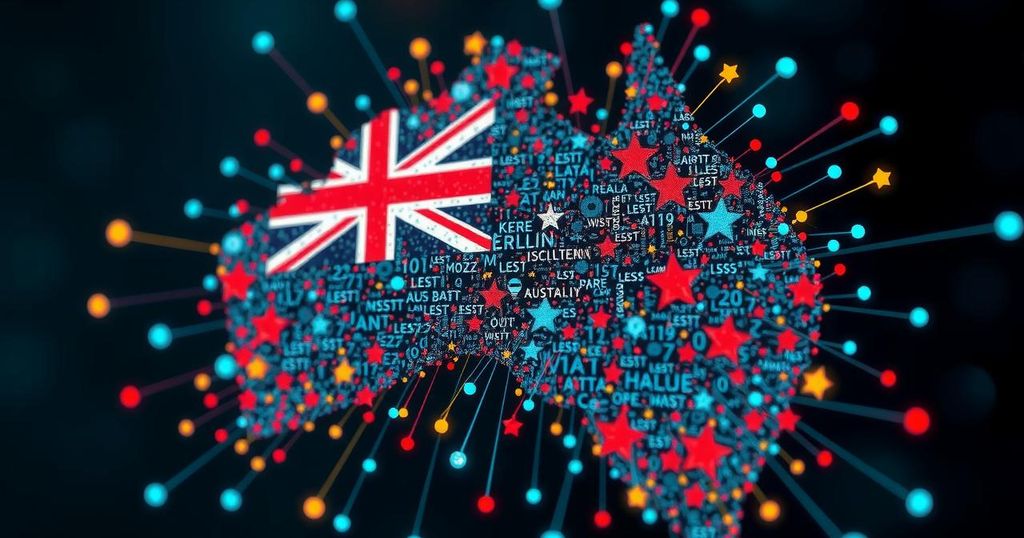The Threat of Deepfakes and Disinformation to Australia’s Electoral Integrity
Disinformation and deepfakes significantly influenced the recent US elections, raising urgent concerns for Australia as it prepares for its electoral process. AI-generated content poses challenges in identifying false representation, potentially undermining democratic integrity. Notable figures emphasize the urgent need for improved awareness and strategies to combat these threats amid a rise in misleading media intended to distort public perception and influence political outcomes.
As the United States assesses the implications of Donald Trump’s presidency, the role of disinformation and deepfakes in elections has become increasingly apparent. During the recent campaign, a substantial volume of AI-generated visual and audio content circulated, depicting false narratives about political figures, including Vice President Kamala Harris. These deepfake videos, enhancing the potential for misinformation, presented fabricated scenarios that could mislead voters significantly.
Deepfake technology, particularly alarming, raises critical concerns regarding the integrity of democratic processes across the globe. Microsoft has issued warnings about continuous disinformation efforts, revealing that Russian operatives have produced deepfakes portraying Vice President Harris in a negative light, such as falsely suggesting she made disparaging comments about Trump or engaged in illegal activities. This increased prevalence of artificial intelligence in creating deceptive content poses a significant risk of undermining electoral integrity in countries like Australia.
Moreover, individuals may struggle to discern the authenticity of visual media as studies indicate that many cannot reliably detect deepfakes. With an accuracy of only about 50% in identifying facial deepfakes and as low as 24.5% for those within videos, the challenge increases. AI detection methods show slightly improved outcomes, though they falter when dealing with compressed videos, commonly shared on social media.
Australia is not immune to these threats as technology becomes more sophisticated. Recent warnings from notable political figures, including Clare O’Neil, highlight the adverse implications for the nation’s democratic foundation. Real-world implications are evident, demonstrated when Senator David Pocock created deepfake videos of prominent political leaders to underscore the risks, as well as instances where public figures have been victimized by similar tactics.
There is already a notable presence of humor-based deepfakes in Australia, but experts emphasize a looming danger in the political sphere. Research indicates a direct correlation between the presence of political deepfakes and reduced trust in media content. This phenomenon is exacerbated by microtargeting, where infectious misinformation is tailored based on individuals’ psychological profiles, solidifying extreme political perspectives.
The unfolding events in the United States, particularly regarding the impact of disinformation and deepfakes on political campaigns, signal a pressing concern that could equally affect Australia. As technology evolves, deepfakes—media manipulated by artificial intelligence to create realistic yet false representations—are becoming ubiquitous. Their potential to distort public opinion and election outcomes necessitates serious reflection on the protective measures required for democratic processes. Experts emphasize an urgent need for awareness and strategies to combat the rise of deepfake technology in political communications.
In summary, the ascendancy of deepfake technology poses a critical threat to democratic elections, as illustrated by experiences in the United States and relevant warnings for Australia. Public awareness and enhanced media literacy are paramount to arm citizens against sophisticated disinformation campaigns designed to sway political opinion and reduce trust in media. Without concerted efforts to curtail the proliferation of deepfakes and enhance detection capabilities, Australia may face similar challenges in preserving the integrity of its electoral system as seen in the US.
Original Source: theconversation.com




Post Comment